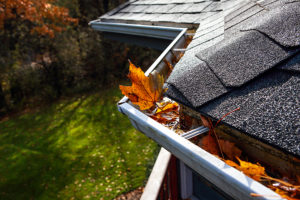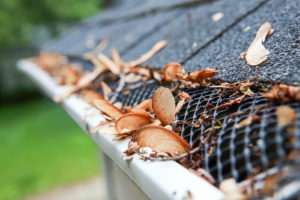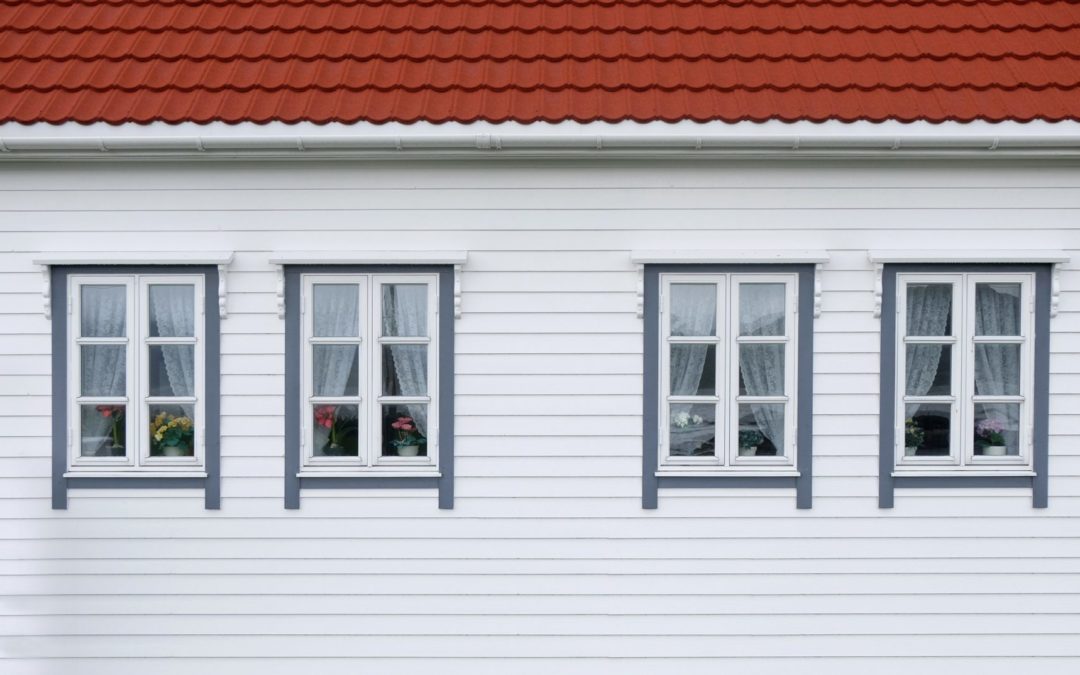Buying a new gutter
When it comes to choosing a gutter for your home, whether old or new, there are a few things you need to ask yourself to ensure that your choice will best suit your needs.
- What’s my budget?
- How long do I want my gutter to last?
- How will a gutter affect the look of my home?
- Will I be able to install it myself?
- What will the maintenance be?
This article will give you all the best gutter tips for homeowners, walking you through answering the above questions so you’ll be ready to purchase your brand-new guttering with confidence.
Cost
Vinyl gutters are going to be the cheapest option, both in terms of initial cost and long-term maintenance costs. However, if you’re willing to spend a little more money, you could go for a metal gutter. Generally, aluminium would be your cheapest metal option – great for its rust-resistant qualities. However, steel is a common favourite among homeowners too, thanks to its long life. If your concern is mostly aesthetic, you may want to consider going for a more distinctive look. You could consider copper, stainless steel or even cast iron. Note that while these have unique decorative value, they are generally higher maintenance to keep looking good. They also cost tenfold what you would pay for a normal PVC, aluminium, or steel gutter.
Durability
Things to look out for if you have a vinyl gutter system, are cold weather, heavy rainfall and UV rays. The first two can cause your gutter to become brittle and lead to cracks or joint separations that may lead to your needing to replace the entire gutter system sooner than would otherwise be necessary. In ideal climate conditions, your gutters should last for ten years at least and a lot longer if you take care of them. Given that many PVC gutters are seamless, timed corrosion is a diminished threat. This is furthered given that these gutters never need to be painted.
If you’re sold on having a metal gutter system, steel is a great option for its weather resistance and long lifespan. A big downside, however, is that steel gutters are prone to rusting, so they would need extra care when it comes to preventing this type of corrosion. Aluminium, on the other hand, is naturally rust-resistant, optionally seamless and otherwise weather-resistant. Copper is also extremely durable.
Some things to look out for
 Roof Damage: A leaky roof can be a sign that your gutters need to be cleared or repaired. The water build-up can also lead to roof rot.
Roof Damage: A leaky roof can be a sign that your gutters need to be cleared or repaired. The water build-up can also lead to roof rot.
Damage to brackets: A build-up of debris in your gutters can become heavy, placing a strain on the supporting brackets which may pull away resulting in loose gutters.
Damage to Fascia: Accumulated damp due to blocked gutters can begin to rot your fascia, not only leaving your home looking neglected and undesirable, but also exposing the rafter-ends of your roof timbers to the weather.
Erosion: The foundation of your house could become unsettled due to soil erosion — leading to cracked walls and uneven floors. If your gutter is working properly, this pooling shouldn’t happen.
Aesthetics
If you want the right gutter to go with your Tuscan-themed holiday house, or your sleek, modern home, you may be willing to spend a little (or a lot) more to get those finishing touches just right. If you want a specific colour on a budget, then our gutter tips for homeowners recommend going with a custom, moulded PVC. Seamless aluminium can also be a great choice. Both can be painted any colour, but PVC, being plastic, could also come in a variety of colours without paint. Bear in mind that black PVC will be a lot noisier when expanding or contracting in different weather conditions. As mentioned before, both are rust-resistant. On the more expensive side, if you’re thinking of something more rustic, you could go for copper or cast iron. Alternatively, you could go for something sleek like copper (consistent application of a sealant will keep it nice and shiny) or even stainless steel- the latter being quite rare.
DIY
When it comes to ease of installation, it doesn’t get much easier than PVC. That being said, the more common metal gutters can be almost as simple to install, given the right set of tools and instructions. Leaky gutters can become a problem and could either require more sealant, new joiners. In the case of UV-affected PVC, leaks could mean the replacement of the whole gutter. Certain gutter types are more susceptible to taking damage from supporting the weight of a person on a ladder than others, especially metal ones.
Maintenance | the value of clean gutters
 Cleaning is the most important of our gutter tips for homeowners. Blocked gutters may not seem like a big deal but ensuring this part of your home is in good working order has far-reaching benefits. Gutters essentially manage the flow of rainwater that falls on your roof, directing it away from your home during a downpour or storm. If they’re blocked, the water can pool in the wrong places. This could then flow back into your house and cause structural damage to your home inside and outside.
Cleaning is the most important of our gutter tips for homeowners. Blocked gutters may not seem like a big deal but ensuring this part of your home is in good working order has far-reaching benefits. Gutters essentially manage the flow of rainwater that falls on your roof, directing it away from your home during a downpour or storm. If they’re blocked, the water can pool in the wrong places. This could then flow back into your house and cause structural damage to your home inside and outside.
That’s why ensuring your gutters are free from leaves, moss, sticks and other debris is an important part of your regular maintenance and a vital risk mitigation practice. Damage to your home caused by blocked gutters may not be covered by your insurance, which is another reason why it’s important to clean your gutters regularly.
Clean and clear gutters will…
Keep out pests: If you have poorly maintained gutters with pooled water, you will soon suffer a fly and mosquito infestation. Birds, too, love blocked gutters as they provide convenient spots for gathering nesting material and finding a meal.
Prevent mould: If your gutters are blocked, the rainwater that collects doesn’t just flow off over the top, instead it flows back to the house and into your eaves. Eventually, it can get into your wall cavities and cause widespread damage by starting and then accelerating the spread of mould and mildew. Which, of course, can cause health issues for humans and pets.
Avoid a fire hazard: Clearing and cleaning gutters before the onset of extremely dry, hot weather is also a good idea if you live in a bushfire-prone area. This will reduce the likelihood of spot fires caused by flying embers close to your home.
How often should you clean your gutters?
On average, you should clean your gutters at least three times a year. But that’s relative to how many trees you have around your house and how much precipitation your region gets. Remember that snow and hailstorms can block your gutters too. Anytime they are remotely full, they need to be cleared. Consider fitting gutter guards as well, they help to prevent moss, leaves and debris from blocking up the gutters. We hope you found what you were looking for in our top gutter tips for homeowners!
If you’re afraid of heights, or don’t have the time or strength and/or the right tools to clean your gutters yourself, consider hiring a professional to get the job done. Contact us for a referral and to learn more about avoiding damp and water damage in your home. Call Colette on 027 234 5454 or email her at admin@flowfix.co.nz

